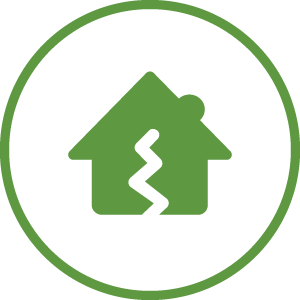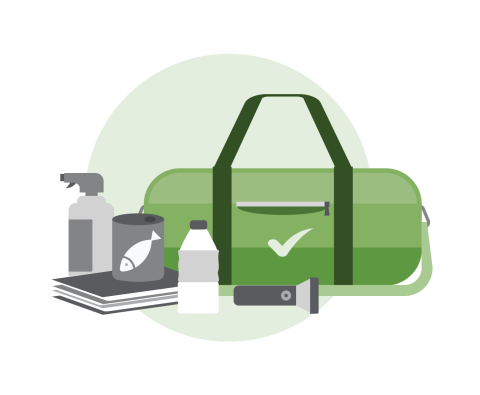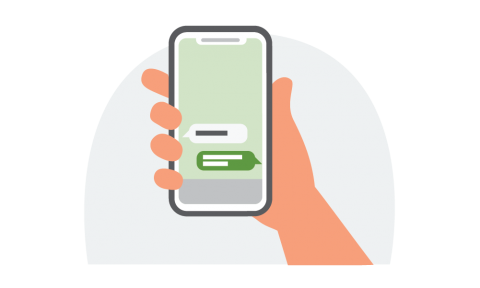Words to Know
Am I at Risk?
What Can I Do?
Learn More
An earthquake is the sudden, quick shaking of the earth. It is caused by rock breaking and moving under the ground. Additional earthquakes, known as aftershocks, can occur for hours, days, or even months after an earthquake. These are usually smaller than the first earthquake. However, they could cause more damage to structures weakened by the first earthquake.
Earthquakes can also cause tsunamis. Tsunamis are a series of waves caused by a large and sudden disturbance of the sea.
Words to Know
Aftershock - Another earthquake that happens after the first earthquake. These are usually smaller than the first earthquake.
Fault Lines - Cracks in the rocks below the earth’s surface.
Seismograph - A machine that measures an earthquake.
Epicenter - The center of an earthquake. Vibrations are sent from the epicenter in many directions.
Seismic Activity - This is another word for earthquakes, along with tremors, quakes, and shakers.
Am I at Risk?

All 50 states and five U.S. territories are at some risk for earthquakes. Earthquakes can happen at any time of the year and occur without warning. Scientists are working on a way to detect when an earthquake may happen.
What Can I Do?
Before

- Build an emergency kit with items that you will need if you have to evacuate quickly.
- Make a family communications plan.
- Know the safe spots in every room—under a sturdy table or against an inside wall.
- Secure household items.
- Ask your family to hold earthquake drills—drop, cover, and hold on!
During
If Inside

- DROP to the ground.
- Take COVER under a sturdy table or other heavy furniture. If there is nothing to get under, cover your face and head with your arms and crouch near an inside wall. Try your best not to touch your eyes, nose, or mouth.
- HOLD ON until the shaking stops.
- STAY AWAY from windows, glass, lighting fixtures, or furniture that could fall, like bookcases.
- STAY INSIDE!
- Do not use elevators!
- If trapped under debris:
- Cover your mouth with your shirt. Try to touch only your shirt.
- Do not scream – you could breathe in dust.
- Tap on a pipe or wall so rescuers can find you.
If Outside
- Stay there. Move away from buildings, streetlights, and wires.
- Stay out in the open until the shaking stops. Buildings could collapse and hurt you.
After

- Expect aftershocks. They are usually not as strong but can cause damage.
- Do not enter a damaged building.
- Open cabinets carefully. Objects might have moved and could fall on you.
- Wear long pants, long sleeves, and shoes to protect your skin from getting scratched by broken objects.
- Text, don’t talk. Unless there’s a life-threatening situation, send a text so that you don’t tie up phone lines needed by emergency workers. Plus, texting may work even if cell service is down.
- Everyone reacts differently to stressful situations. Take care of your body and talk with your parents or other trusted adults if you are feeling upset.
Learn More
The “Ring of Fire’ is the zone surrounding the Pacific Ocean where about 90% of the world’s earthquakes occur.
The Richter Scale measures the strength of an earthquake. It goes from 0.0 (none) to 10.0.


